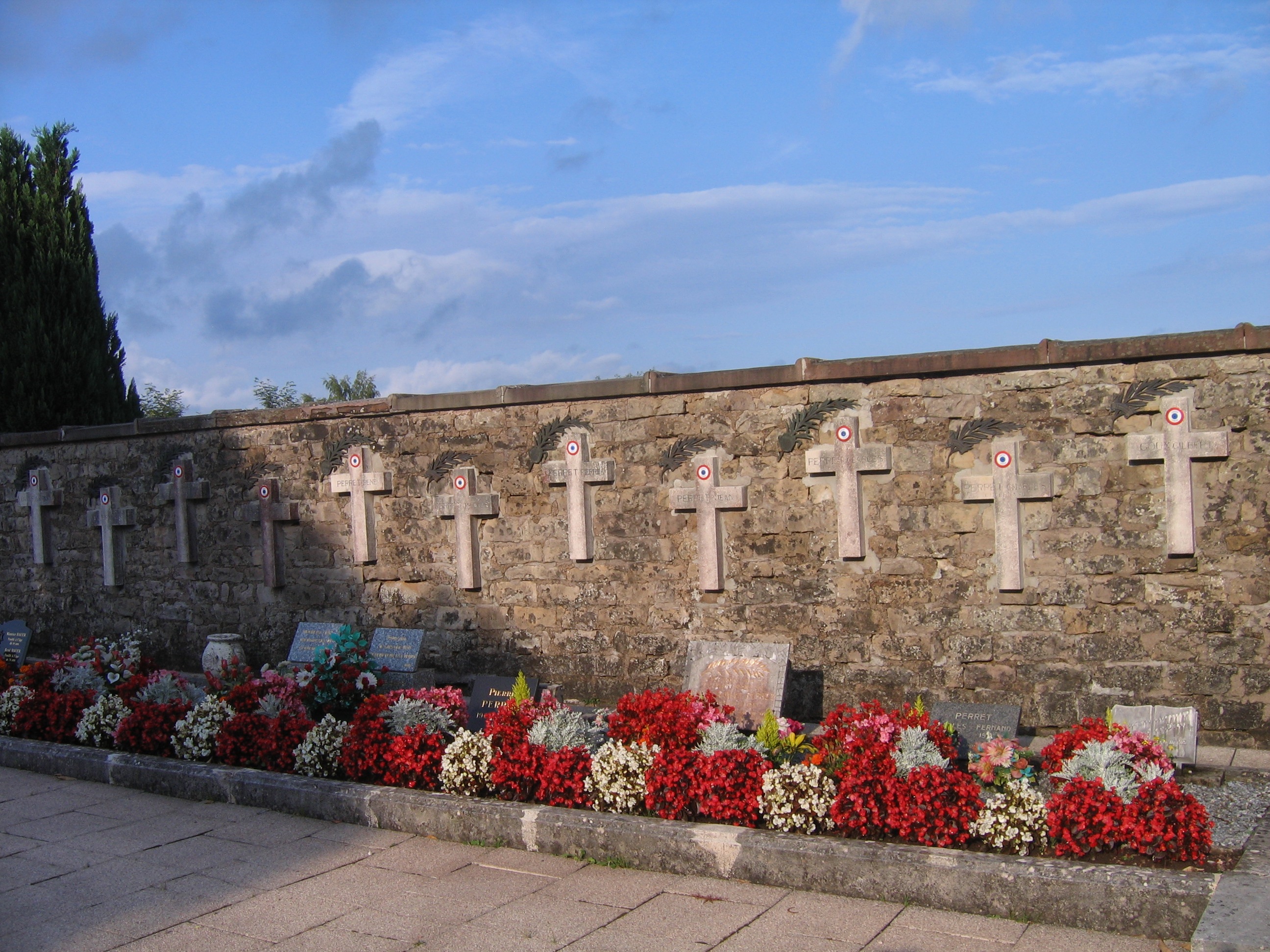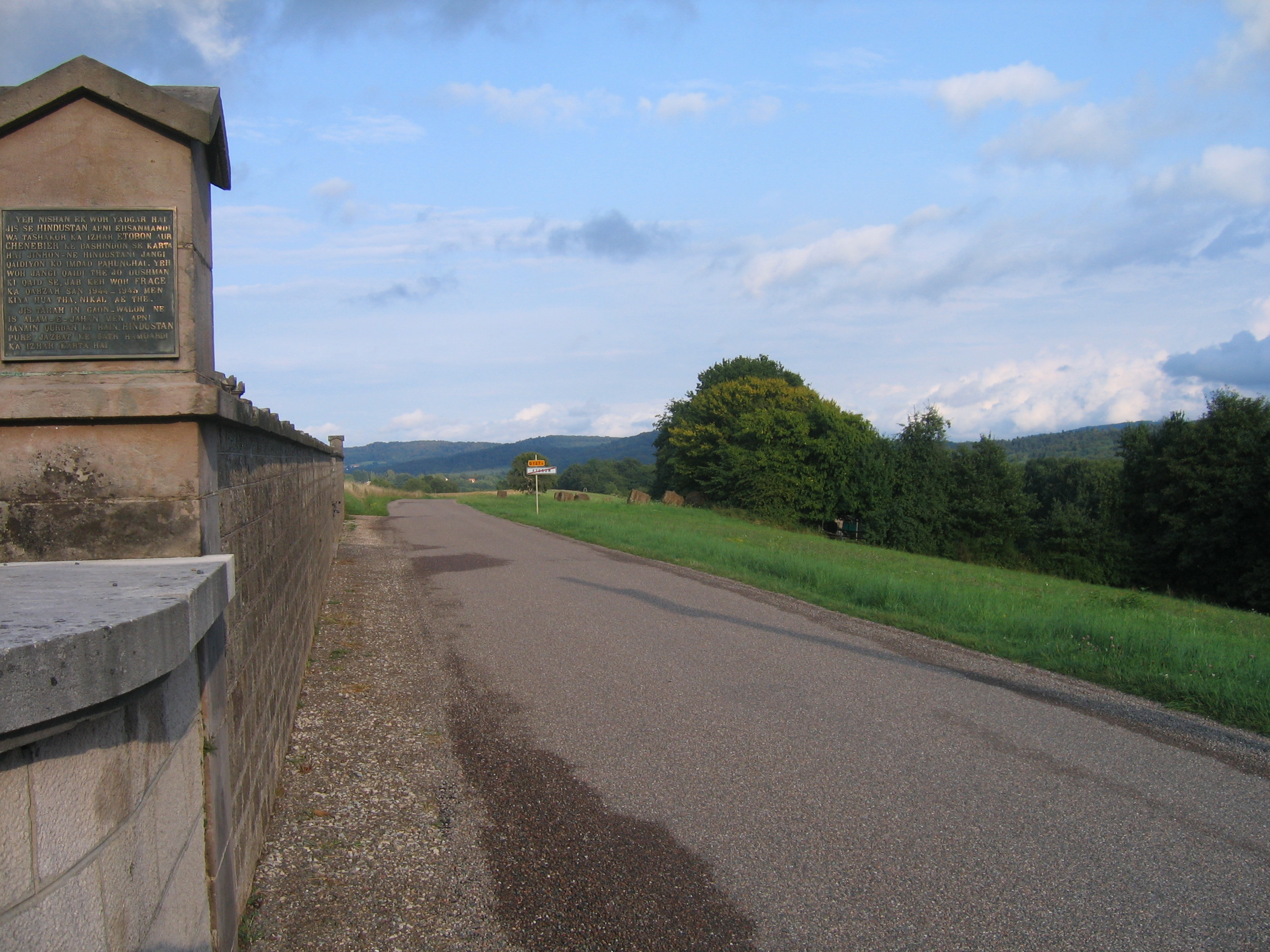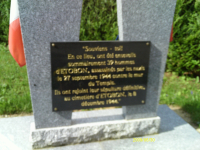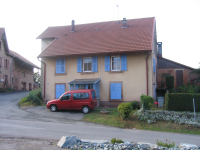Rumors
Friday, September 29, the shells and rain were still falling on Etobon. Almost surely, the bombardment had two purposes: to continue the punishment of the Etobonais and to keep them from finding out what happened a few kilometers away in Chenebier. Rumors began to circulate, though, from German soldiers and neighbors. Jules Perret's journal continues:
"The shells are still hammering the soil of Etobon. Two boches, a big blond and a dark one, stopped, seeing Suzette and Aline in front of the house:
“'Can you tell us where our comrade is buried, the one who was killed in this village on the 13th?'
“'Nobody knows. Women don’t get mixed up in these things.'
“'You think so? There are female terrorists here, too.'
“'Talk to the men.'
The blond boche snickered.
“"Men? There aren’t any.'
“'Pretty much. They took them to the trenches.'
“'They shot them yesterday at Chenebier. Go see for yourselves!'
"Suzette shrugged her shoulders at this despicable lie. After a few more questions, the women concluded that these two were Karl Lade, the prisoner taken on the 13th, and one of those taken prisoner at my sister’s house, called Schott.
"This whole thing perplexes us. We also heard that these boches have threatened to burn the village unless the body of Officer X was handed over. Panic has begun to set in. Some are leaving. We thought about going to Chenebier, to Aline’s parents’, but the major in charge of the infirmary said, 'Why leave? You won’t find anything,' and we calmed down.
"On my way from Remillet’s cellar to my house, I found two little boches, who were eighteen years old at the most. For a little milk – what the colt didn’t want – they put two hundred-franc notes on the table. 'Soldiers clean, correct …' I’m ready to take anything from the Germans that they could use against us in the war, but money is something else. But they wouldn’t take it back. And they gave me 100 more francs for a room.
"Three others were walking around my wagon, trying to take off a wheel. I intervened. Then I fed a little iron to my forge. The one who took it from me had a Bible in his pocket. He said to me, 'Protestant!' But he still would have stolen part of my wagon.
"At Chenebier, the German captain is haranguing the villagers. He told them Germany was in flames, that his mother and wife had been killed by a bomb, but that the people of Chenebier had nothing to fear if they behaved and didn’t act like those people of Etobon, all of them terrorists. He added, “Despite that, I saved the village from complete destruction.” I wonder what that meant.
"Ambulances pass by with the wounded."

 Katherine Douglass
Katherine Douglass


